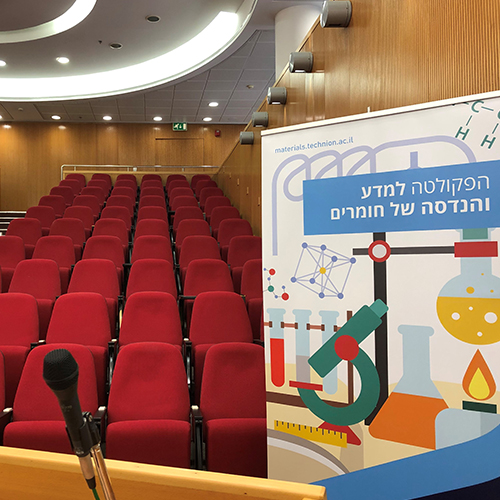
Ms. Bar Shlomo-Avitan - Ph.D. Candidate
06/06/2024
David Wang Auditorium, 3rd floor Dalia Meidan Bldg.
14:30
PolyHIPEs are highly porous polymers templated within high internal phase emulsions (HIPEs). The
ability to tailor the macromolecular and porous structures of polyHIPEs makes them suitable three
dimensional scaffolds for controlled release and tissue engineering. The objectives of this research were
to synthesize polyHIPEs containing biodegradable macromolecular monomers (macromers), specifically,
methacrylated oligomeric biodegradable polyesters: poly(ɛ-caprolactone) (PCL), polylactide (PLA), and
poly(lactide-co-glycolide) (PLGA). PolyHIPEs based on the free radical polymerization of methacrylated
oligomeric PCL diols (from 530 to 2000 g/mol) exhibited densities between 0.18 and 0.28 g/cc,
degradation to completion within 2.5 h in 3 M NaOH, and potential for cell growth. PolyHIPEs based on
methacrylated oligomeric PLA and PLGA polyols (synthesized using ring-opening polymerization) with
molecular weights of ~2200 g/mol exhibited densities between 0.10 and 0.13 g/cc and degraded to
completion within 12 h in 0.1 M NaOH. 3D printing of these HIPEs in a gel bath successfully produced
hollow tubes, demonstrating their potential for 3D printed cell growth scaffolds.


